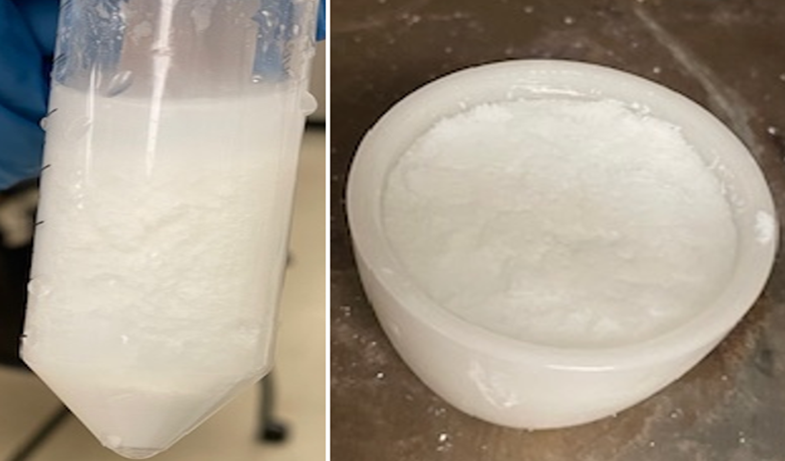Advantages:
- P25 TiO2-ZnO, a photocatalyst, helps to degrade organic dyes in water pollutants
- Cost-effective green technology to enhance the decomposition of organic pollutants
- A novel synthesis process of TiO2-ZnO-mucilage composite for maximum photocatalytic efficiency
- Biocompatible, chemically stable, and easy to synthesize
Summary:
Titanium dioxide (TiO2) and Zinc oxide (ZnO) semiconductors have been extensively applied in several environmental applications due to their higher photocatalytic performances toward different organic pollutants, pharmaceutical compounds, and bacteria. Cactus pectin, a natural biopolymer, is rich in polysaccharides and has gelling, stabilizing, and film-forming properties. In combination with P25 TiO2-ZnO, pectin can help enhance the material's photocatalytic activity, biocompatibility, or environmental sustainability. This approach is of interest in developing eco-friendly nano-composites for environmental cleanup, such as removing organic pollutants from water or air.
Our researcher has identified a natural substance, cactus pectin, to enhance the effectiveness of P25 TiO2-ZnO, a photocatalyst used to degrade organic dyes in water pollutants. The cactus pectin improves the efficiency and performance of the plasmonic photocatalyst by enhancing the powder composition and structure of the photocatalyst film. The photocatalyst film’s hydrophilicity (due to pectin's presence) enhances the pollutant’s contact with water, thereby improving the catalyst's efficiency. In this invention, the researcher optimizes the synthesis process of the TiO2-ZnO-mucilage composite for maximum photocatalytic efficiency and effective photocatalytic properties. This novel idea increases the surface area accessibility for photocatalysis and provides a more effective and durable solution for combating pollution.

The slurry of photocatalyst composition forms a colloidal solution when pectin is added.
Desired Partnerships:
- License
- Sponsored Research
- Co-Development